 This is definitely the season of anime that strongly resemble other things. Of the top tier of shows this season Fumetsu no Anata e is certainly the most modern anime-like by far. Dynazenon is solidly a 2000’s Gainax throwback but with a lot of tokusatsu in it. Odd Taxi is a late-night drama married to a Woody Allen film, and Nomad is like a great Hollywood movie of 60 or 70 years ago. And then we have Mars Red, the forgotten stepchild of the season. It’s pulled off the remarkable feat of seamlessly transitioning from the stage to TV while ineffably retaining the feel of watching a play.
This is definitely the season of anime that strongly resemble other things. Of the top tier of shows this season Fumetsu no Anata e is certainly the most modern anime-like by far. Dynazenon is solidly a 2000’s Gainax throwback but with a lot of tokusatsu in it. Odd Taxi is a late-night drama married to a Woody Allen film, and Nomad is like a great Hollywood movie of 60 or 70 years ago. And then we have Mars Red, the forgotten stepchild of the season. It’s pulled off the remarkable feat of seamlessly transitioning from the stage to TV while ineffably retaining the feel of watching a play.
 I admit, of all my top shows this season this one is the most personal for me – it speaks to my particular aesthetic and I resonate with that. Nevertheless I truly believe that as objectively as it’s possible to be about such things, it’s a superb series. As I noted in my Nomad post this week Mars Red is very much an actor’s series – the music and art direction are fantastic, but it’s the performances – in very theatrical fashion – which ultimately make this material soar. And none more so than the peerless Sawashiro Miyuki, who’s doing a bit of an Orson Welles-The Third Man thing here with Defrott.
I admit, of all my top shows this season this one is the most personal for me – it speaks to my particular aesthetic and I resonate with that. Nevertheless I truly believe that as objectively as it’s possible to be about such things, it’s a superb series. As I noted in my Nomad post this week Mars Red is very much an actor’s series – the music and art direction are fantastic, but it’s the performances – in very theatrical fashion – which ultimately make this material soar. And none more so than the peerless Sawashiro Miyuki, who’s doing a bit of an Orson Welles-The Third Man thing here with Defrott.
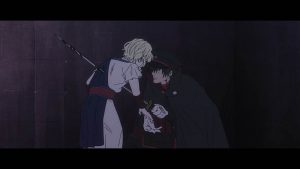 Aoi can be irritatingly dim (indeed, I did find her pretty irritating for a while) but in retrospect I think pairing her off with Defrott was a stroke of genius. She’s such a contrast to him in every way that she makes a good foil, and she brings out the most human elements still left in him. Naturally she had no idea that Defrott was a vampire – and even when Maeda and he were doing superhuman stunts around the bunker, she still threw her body in front of Maeda’s sword to protect a “child”. For his part Maeda is clearly quite mad (though I admit, Aoi does look a bit like Misaki), and I think his potential as a force for good has pretty much run out.
Aoi can be irritatingly dim (indeed, I did find her pretty irritating for a while) but in retrospect I think pairing her off with Defrott was a stroke of genius. She’s such a contrast to him in every way that she makes a good foil, and she brings out the most human elements still left in him. Naturally she had no idea that Defrott was a vampire – and even when Maeda and he were doing superhuman stunts around the bunker, she still threw her body in front of Maeda’s sword to protect a “child”. For his part Maeda is clearly quite mad (though I admit, Aoi does look a bit like Misaki), and I think his potential as a force for good has pretty much run out.
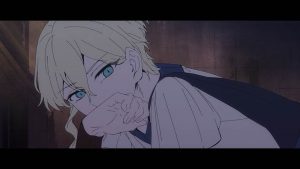 Suwa defines the difference between vampires and humans as those who are sick of life and those who aren’t. Suwa and to an even greater extent Takeuchi seem to be the most resolved to their vampire existence – Shutaro (like Yamagami) maintain their sanity because they’re still mostly human. Ayame seems more than ready to die, and Suwa in his way tries to steer her away from that path, but clearly she sees no future that’s worth living long enough to see. Also of note here in the backstory of Tenmaya, who’s revealed to be a half-Japanese who was rejected by the human world as a child and befriended vampires instead. It plants some interesting allegorical seeds about Mars Red as a whole, but that’s a matter for interpretation (at least for now).
Suwa defines the difference between vampires and humans as those who are sick of life and those who aren’t. Suwa and to an even greater extent Takeuchi seem to be the most resolved to their vampire existence – Shutaro (like Yamagami) maintain their sanity because they’re still mostly human. Ayame seems more than ready to die, and Suwa in his way tries to steer her away from that path, but clearly she sees no future that’s worth living long enough to see. Also of note here in the backstory of Tenmaya, who’s revealed to be a half-Japanese who was rejected by the human world as a child and befriended vampires instead. It plants some interesting allegorical seeds about Mars Red as a whole, but that’s a matter for interpretation (at least for now).
 Sawashiro’s scenes with Defrott and Aoi are a masterclass on every level. She has a remarkable ability to always be recongizably herself – you’d never mistake that voice for anyone else’s and she makes little attempt to modulate it – yet still embody the hugely divergent characters she’s playing. Vampires have always been the tragic heroes of Mars Red, but never has their sad plight been more eloquently elucidated than here. They are like creatures out of fairy tales, increasingly out of place in the rational modern world. “The older a vampire gets, the more prone they are to depression”. I can only guess at Defrott’s age, but it’s quite believable that being on stage is all that’s kept him connected to the world.
Sawashiro’s scenes with Defrott and Aoi are a masterclass on every level. She has a remarkable ability to always be recongizably herself – you’d never mistake that voice for anyone else’s and she makes little attempt to modulate it – yet still embody the hugely divergent characters she’s playing. Vampires have always been the tragic heroes of Mars Red, but never has their sad plight been more eloquently elucidated than here. They are like creatures out of fairy tales, increasingly out of place in the rational modern world. “The older a vampire gets, the more prone they are to depression”. I can only guess at Defrott’s age, but it’s quite believable that being on stage is all that’s kept him connected to the world.
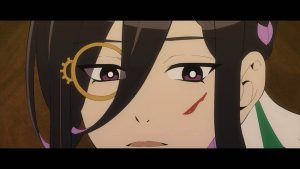 Defrott cares enough about Aoi to command Shutaro to rescue her, but does he care about himself enough to survive? I hope so, because (not unexpectedly, if we’re honest) he’s become the most compelling character in a terrific cast. His origin story – the vampire who made him starved herself to death out of guilt – is tragic enough. But will this be Defrott’s tragic end? Perhaps the inclination to put Rufus in his place will be enough to keep Defrott going for a while. In the meanwhile we have Shutaro in the bat suit, untried and untested, leaving a trail of steam in his wake as he tries to save his beloved, destined never to be with him again. It really does look, as Defrott says, like something out of a fairy tale.
Defrott cares enough about Aoi to command Shutaro to rescue her, but does he care about himself enough to survive? I hope so, because (not unexpectedly, if we’re honest) he’s become the most compelling character in a terrific cast. His origin story – the vampire who made him starved herself to death out of guilt – is tragic enough. But will this be Defrott’s tragic end? Perhaps the inclination to put Rufus in his place will be enough to keep Defrott going for a while. In the meanwhile we have Shutaro in the bat suit, untried and untested, leaving a trail of steam in his wake as he tries to save his beloved, destined never to be with him again. It really does look, as Defrott says, like something out of a fairy tale.


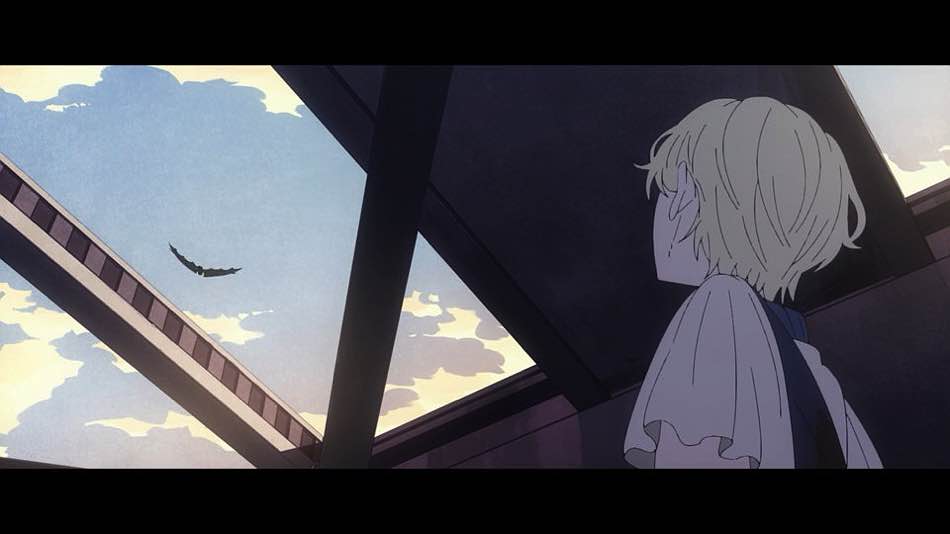
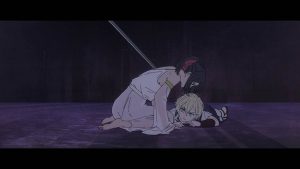

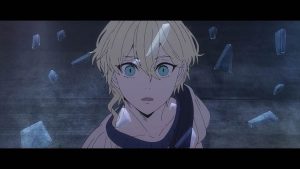
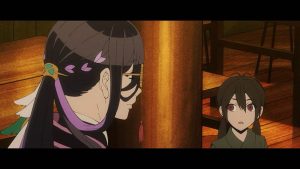
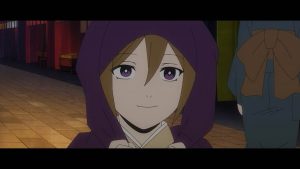

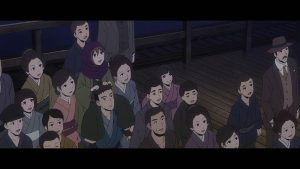

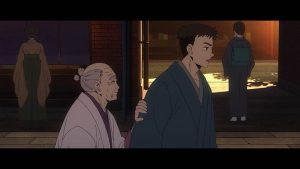

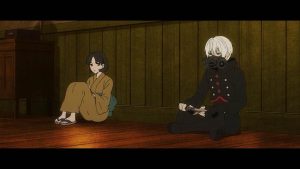
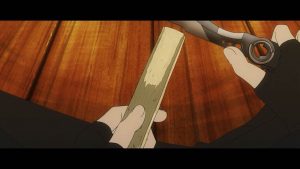



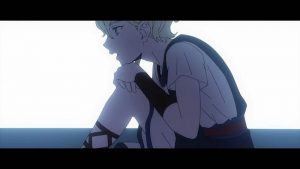
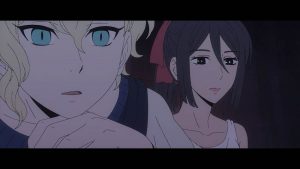


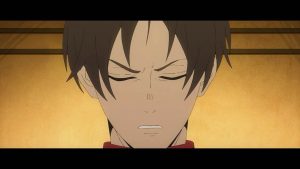
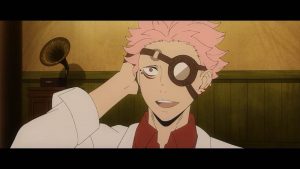

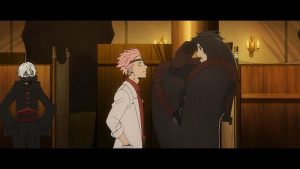
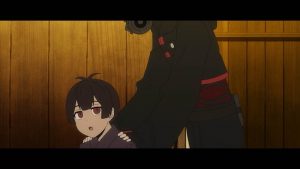
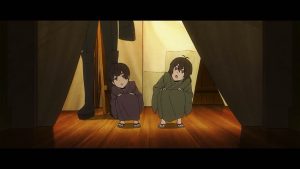
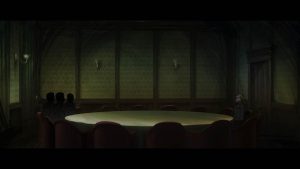


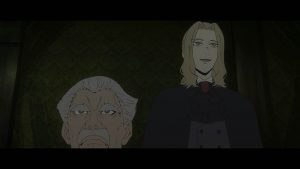
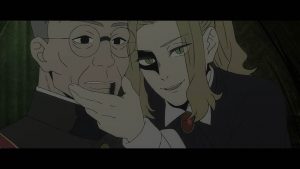
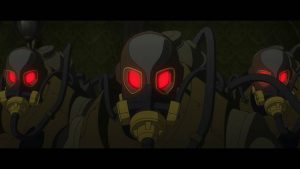
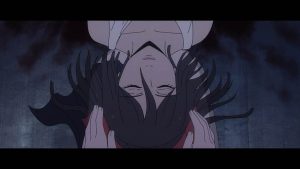

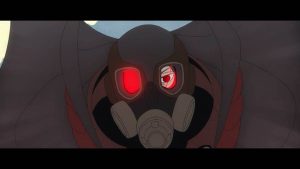
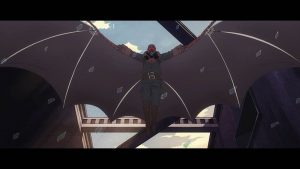
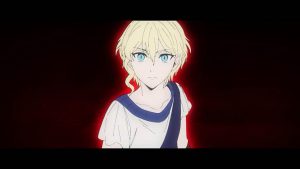
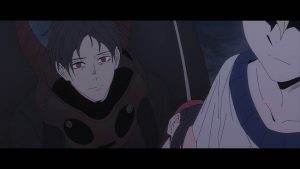

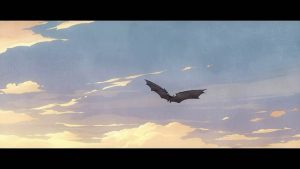
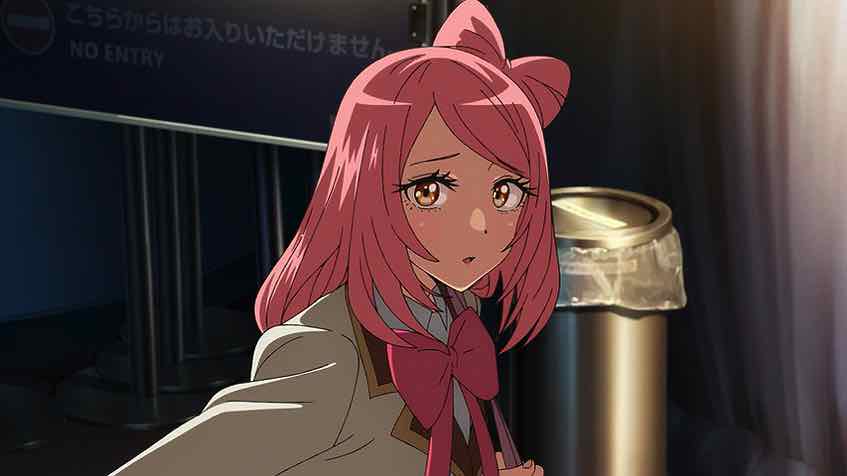
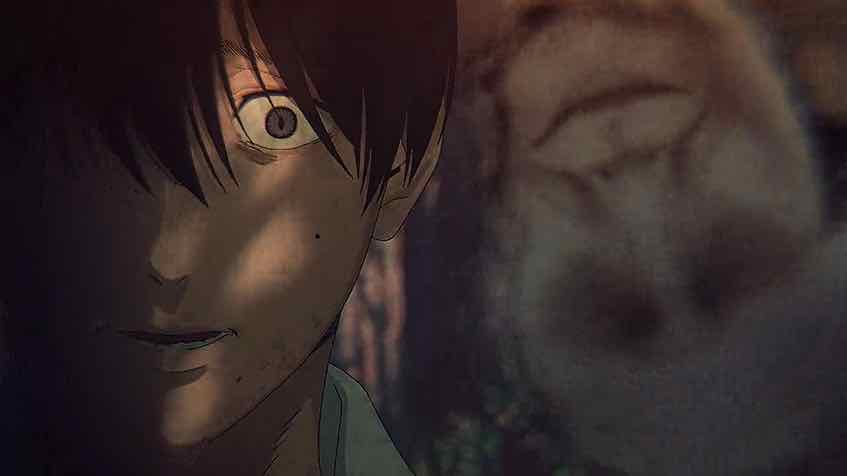
animealex
June 16, 2021 at 2:54 amAfter this episode, I’m a little more optimistic for Defrott’s survival. He was depressed and just going through the motions whenever possible, but now he has a certain spark in his eyes, as he watches a Fairy Tale unfold before him and gets reminded, that there’s still so many impossible things to feel. And of course, someone has to stop Rufus, and I fear the other “good” vampires at Tenmaya’s place will soon be betrayed (with whom was Ayame speaking when she went outdoors?).
Also, Nakajima wins the prize for the least self aware person in this show. Really? You, who’s ready to betray everyone for your mad plans didn’t see Rufus betrayal come from a mile away? Old fool.
Any idea what the phrase “People who are tired of life, are really children.” means? I always associated children with the exact opposite. Bad translation? Did Aoi mean “immature”?
Guardian Enzo
June 16, 2021 at 7:53 amIf that’s a famous Japanese aphorism I’m not aware of it. I hadn’t thought deeply about it but it is a slightly odd thing to say, I suppose. I’m not sure where she was going with it.
Princess Usagi
June 16, 2021 at 12:37 pmI don’t believe that it is a mistranslation-I remember her using the word “kodomo” for child. I think what she was getting at was that people who get tired of life only see the circumstances in front of them, instead of looking at the big picture. Similar to how a child sees only a simplistic vision of what’s in front of them-i.e. telling them to wait 5 minutes for a cookie might not work when all they see is the cookie they want and have no concept of time.
For vampires, they also have a bad concept of time, in that all they can see is eternity in front of them, rather than the grander scheme of new wonders that can surprise them in the long lifespan they have (Suwa’s concept of life being worth living for the joy at seeing new developments in art and technology). For example, with Shirase, instead of getting caught up in the despair of not being able to find Kurusu in the present moment, throughout the series, she focuses on the excitement of how each new lead with the newspaper just might get her one step closer to him.
I loved how the writers used contrasting ideas of child-likeness and life in Suwa’s concept of child-like wonder making the backbone of what it means to be alive versus Shirase’s concept of child-like near-sightedness making the core of what it means to not be alive.
Guardian Enzo
June 16, 2021 at 12:47 pmAnd Suwa has shown himself to have an interest in human cultural endeavors (like wanting to see the play). I think maintaining a sense of curiosity is the key to vampires maintaining their will to live, at least based on what we’ve seen.
Raikou
June 17, 2021 at 6:57 pmAnime like this is the one that reminded me Sawashiro Miyuki is on different league than most female seiyuu.